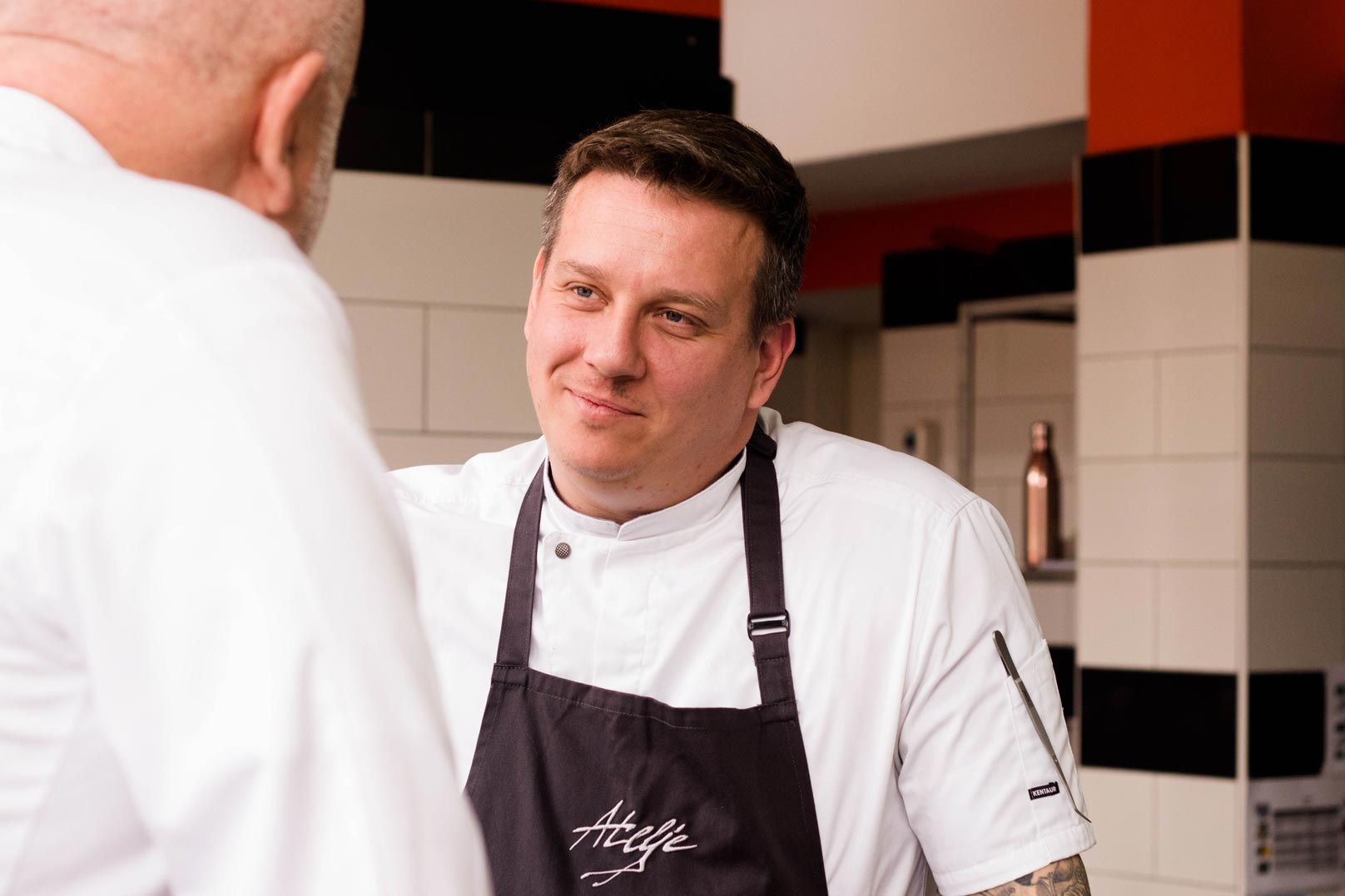Kul IN: Why are education and self-development important for chefs?
– I would say that formal education is important, but self-development in terms of cooking and working in different restaurants is crucial. Once you get the good foundation from education, the self-development starts. Working in different restaurants is the most important thing for a chef. It is necessary for professional growth.
Kul IN: What does the Michelin chef “title” mean to you? What do you think, what should be your role in developing gastronomy?
– The star is a result of good teamwork. A chef is nothing without his team, it is an accolade we got for our teamwork. Don’t get me wrong, it means a lot to us, and we are very proud of it but I always use plural instead of singular because I don’t consider it to be mine reward but ours.
As far as our role is concerned, firstly, we try to develop the mindset and mentality of average consumer, average guest. Chefs have a big role and responsibility to bring this new culinary culture to a wider audience, and consequently form new guests, get people interested in food, wine and the culinary scene. The second step is to help new upcoming chefs and share our knowledge with them. That’s how we can upgrade and develop the culinary scene.
Kul IN: Describe the concept behind your restaurant…
– We ask our guests to also be adventurous and try something new, widen horizons. My restaurant Breg is more casual and laid back. It is a bistro-style place, we do classic dishes like tiramisu or pasta carbonara etc. We make everything in-house, e.g. our homemade pasta, and make sure we work with the best ingredients. It all comes down to ingredients, if you have good ingredients you almost can’t go wrong. And the philosophy of Breg is to be relaxed, casual, comfortable, but still different and fun.
Kul IN: What advice would you give to young chefs, something important that nobody told you when you were starting.
– There is one short sentence that I heard a few years ago and if someone would have said that to me in the beginning, I might not have understood it. Sometimes when you are young you don’t appreciate and understand the advice straight away. In any case, one chef said “never relax”.
This can mean many things, but once you work in a proper professional kitchen, you understand what it is about. Not relaxing is a good thing. If you relax too much in the kitchen it can come back and haunt you.
Kul IN: What types of knowledge do you like to share with students as their mentor?
– Everyone should start with the basics. I learned in classic French restaurants, and I think that is a good place to start after school. I think that passing down knowledge to younger chefs who are just starting is the most important thing. The basics are crucial – how to make a sauce, how to make a soup, how to make the classics. Once the student progresses it is up to them to develop their style. It would be pointless if I tried to teach young chefs how to prepare my original dishes if they first hadn’t mastered the basic techniques. You have to start from a good foundation and keep cooking. Over time, you will realize in which direction you want to take your career.
Kul IN: Why did you choose food as a means of self-expression?
– It started almost as a necessity! I was always the first one home in my high school years, so I started cooking for myself, experimenting, watching Jamie Oliver. These were the first fun cooking shows, we had nothing similar before that. It escalated from there, I cooked for the whole family and after high school it was almost like an experiment. I went to vocational collage for hospitality and tourism. After that, I started working in professional kitchens and it became fun. I loved the professional kitchen from the beginning – I saw the comradery and felt the pressure, loud noises and the heat around you. This atmosphere of friendship and bustle in the kitchen was really appealing to me.
To circle back, it took a long time before I could use food as a medium of self-expression. You need to have a certain amount of experience to transform your ideas into actual dishes. Then you can start expressing yourself through your creations.
Kul IN: Why do you like coming to Kul IN?
– I always feel very welcome when I come here, and I like the atmosphere. We don’t have schools or kitchens like this in Slovenia yet. I was really impressed by the organization and the students’ approach to work, their knowledge. So, naturally, when you invited me again, I said “of course, my pleasure”!



